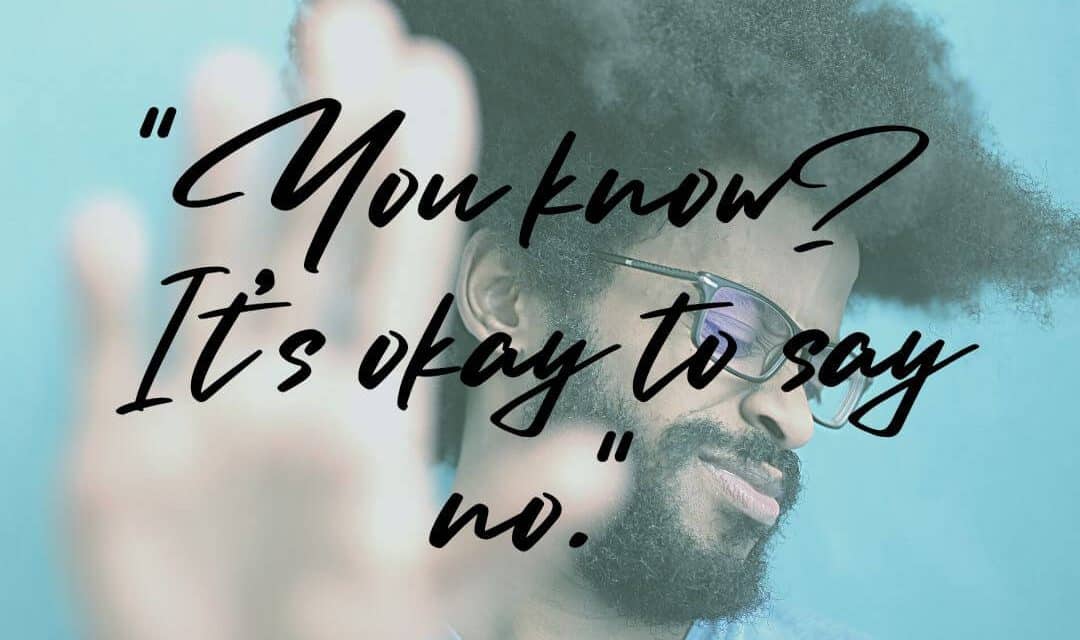There can be many reasons why it is difficult to say no, but usually, it is about fear of what it will mean for your relationship with others. Will your manager perceive you as a lazy person? Will your employee be offended, perhaps even angry? Will saying no create a conflict? Some struggle with guilt if they have said no and are nervous about being too dismissive. Fortunately for you, some strategies can help you say no without any bad consequences. Of course, it depends a lot on how you do it, and in this article, I will take you through 4 strategies that will help you with that.
The 4 Strategies
Here are four strategies that can make it easier to say no:
1. Say More Yes
It may sound counterintuitive, but the first step to getting better at saying no is actually getting better at saying yes. If you do not have a clear plan for the day and have a long and confusing to-do list that is not prioritized, it is easy to get caught on the wrong leg when someone asks for help or asks if they can interfere. And then you might come to say yes without meaning to. It is also because most of us think that a no seems negative and that we are hired on the job to say yes and make things happen. Please make sure that you know what you want to say yes to wholeheartedly. What is your top priority? What tasks do you have to focus on today? Then, refer to your yes when you need to say no.
Please take advantage of the fact that a yes often works better when we communicate with others. When you want to say no, instead tell what you want to say yes to. For example, if you are a manager and your employee interrupts you to ask for help here and now, you can say, “I do not have time for this today; I need the time for another important task. Can we take it tomorrow?” Telling what you say yes to can feel more accommodating than a flatly dismissive no, and it makes it easier for others to understand and accept.
2. Show Respect to The Person You Say No to
Remember that others have good reasons to ask you for help. You have to say no. Sincere respect and recognition are like a miracle mixture that can make any no slip down at the recipient without damaging the relationship. Showing respect means that you see and acknowledge the other person’s positive intentions, even if you want to say no to the request. It is also respectful to be honest, and say no if that is what you mean, whereas a false yes can feel disrespectful. When someone tries to push tasks onto you that is not yours, acknowledge that person’s situation as it is. “I can understand you being busy. However, I myself have plenty to look forward to right now, so I can not take over for you this time.”
3. Deal With Guilt
When you say no to someone, you may experience guilt over it. It actually makes sense because you’re really to blame for someone not getting their will with you. But it is important not to let guilt take over. Excessive guilt can drive you to say yes to more than you can deliver to.
Feel free to reflect on whether you set the bar very high for yourself. For example, you might think that you should respond to emails the same day, or that you should always help others when they need it, or that you should always be available for other people’s questions. Reflect on whether you need to set the bar a bit lower.
Another tip for you is to practice accommodating guilt to some degree. Take care of your time and your own interests and priorities. Others will often blame you for not getting their wishes with you but remember that this small portion of guilt can be the price you have to pay to be honest and loyal to your own priorities.
4. Learn to Stand Firm
Even if you say no in a respectful way, you may find that others will not accept your no and try to make you change your mind. Now you have to stand firm. First of all, keep in mind that it can take time for others to digest your no. It is well known that an unwanted answer can lead to a series of emotional reactions before acceptance occurs. The requester may experience your no as a rejection that leads to denial, anger, attempts at negotiation, disappointment, etc. However, most will end up accepting your no. Give yourself time and keep calm until your land with the other. Remember that it is natural for any person to react this way, and it goes away if you can keep calm and avoid getting annoyed and angry.
Suppose you become insecure and can easily talk you into changing your no to yes, then you need to be better to stand firm. A good way to be better at that is by adopting some personal principles and sticking to them. For example, you can have a principle that you do not check your inbox on the weekends or that you do not accept meetings where there is no agenda. Refer to your principle when you want to say no so that it becomes clear that your no is based on personal principles. Say, for example, I (in principle) do not check emails on the weekends, as long as my kids are so young. Or say: I do not (in principle) accept meetings with no agenda. Then I would get too busy.
Final Thoughts
It is never easy to say no to someone you know or you work with daily, but once you become good at it and you master utilizing the 4 strategies I shared with you in this article, you will find out that you will be less stressed and more focused on the things that matter to you.
Remember that it doesn’t mean that you are a mean person when you say no to someone. It just means that you are a person who values your time, energy, and sanity. People will respect you for that.











